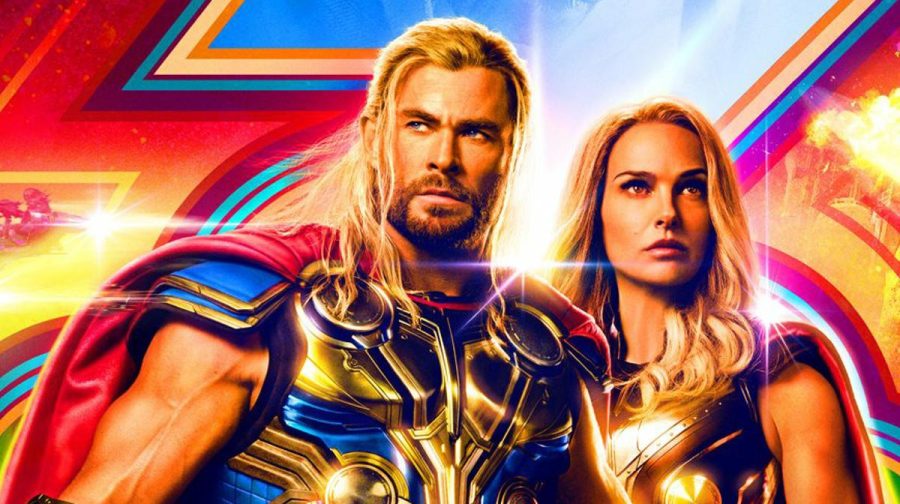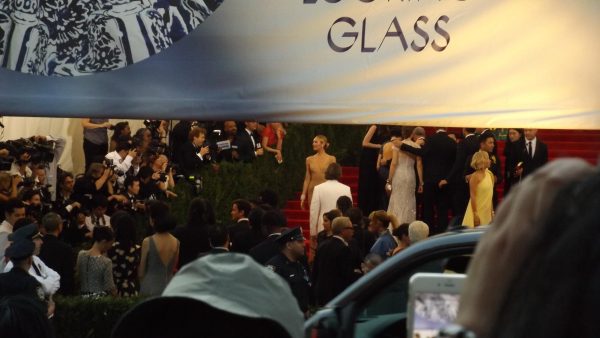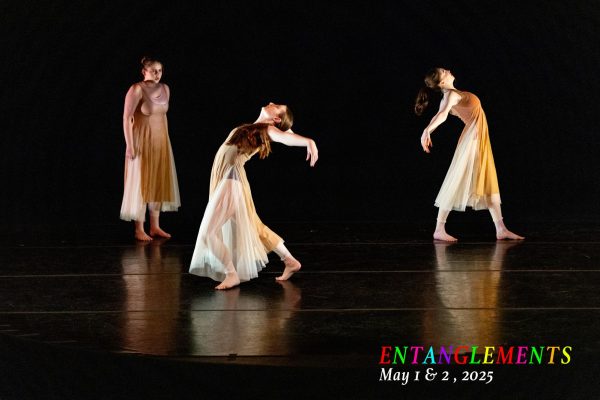Thor: Love and Thunder Broke My Heart
Thor Odinson (Chris Hemsworth) and Jane Foster (Natalie Portman)
As passionate as I can be about movie opinions, I’ll always love cinema no matter what. Why, you ask? Because there’s way more likely a chance that a film will change your life for the better than for the worse. I love praising good movies, and when a movie’s bad, I can be disappointed, but at least I get to make fun of it. But what happens when a movie does more than just disappoint? What happens when you spend years tirelessly awaiting a film out of adoration for the characters, the source material, the previous installments, the creative talent behind the scenes, and the overall potential of the film, all for it to stab you in the back and break your heart? Listen Thor, I’m all out of Love; here comes the Thunder.
Taika Waititi boasts an inspirational career, starting off with feel-good, hilarious surprise hits like Hunt for the Wilderpeople or What We Do in the Shadows, to then creating the Oscar-winning comedic Holocaust commentary Jojo Rabbit. But perhaps his greatest achievement is saving Thor at a time when nobody thought it possible. In 2017, Thor was everybody’s least favorite Avenger (besides Hawkeye) because he was bland, stoic, unrelatable, and predictable. Chris Hemsworth knew this and wanted a change. He and Waititi didn’t just change, but revolutionized how comic book movies can look, feel, and sound with Thor: Ragnarok. After the premiere in 2017, Thor was a beloved superstar, stealing the show in the latest two Avengers films and building up the hype for Thor: Love and Thunder, my most anticipated film of Marvel’s Phase Four. Now, you read the paragraph above, so you know I see this slapstick sequel as an abhorrent atrocity. What turns a goldmine into a dumpster fire? A lack of commitment, on and off screen.
On screen, Thor maintains the jokey attitude set up for him by Ragnarok, but this time, he’s also an idiot and a jerk. I know I sound like a third-grader throwing around juvenile jabs as criticism, but this portrayal of Thor doesn’t contain or command maturity. He repeatedly makes fun of innocent civilians losing their livelihoods, his friends being mortally wounded, or children who were just kidnapped by a cosmic serial killer being scared for their lives. This is not the Thor I once marveled at. Looking back at the first 2011 Thor film, the reckless, arrogant Thor (who Odin exiled from Asgard because he was not worthy) seems like a saint compared to what we have now. And what’s worse, there’s no character development. This Thor learns nothing and loses nothing throughout the entire film.
I’m not insisting the hero needs to lose a loved one to make a film good, but when the film repeatedly pretends characters are about to die for a split second, and I as an audience member couldn’t care either way, it means the film has failed these characters. I’m mainly speaking of Valkyrie and Korg, who seem less like actual three-dimensional personalities and more like check marks in Disney’s corporate checkboxes for diversity and comedy, respectively. These characters have potential to be more than those requirements, and they aren’t. I love Valkyrie, and supposedly she had an entire plotline about finding herself a wife that was cut out of the film so it could air in China, which explains why she has nothing to do here. Korg, Waititi’s self-insert character, was splendid in small doses, but here, he’s unbearable. He and the two screaming goats (who seem to be referencing dated 2013 YouTube humor repeatedly, which never gets funny) are the parts of this film that make me wonder how it even got greenlit.
The only character who seems to have meaningful stakes is Jane Foster, Natalie Portman’s character from the first two films now bulked up and hopped aboard the superhero train. Foster’s version of Thor is one of my favorite comic book characters from the past decade because of her internal conflict; she feels obligated to wield Mjolnir and save the world, but she knows that the more she uses her powers, the worse her cancer becomes. She serves as the heart of the film, but Portman’s portrayal lacks the depth required by the role, opting for cringeworthy quirkiness (and an embarrassing attempt at romantic chemistry with Hemsworth) over actual emotional nuance.
There’s only one actor who’s making any sort of effort in this film, and that’s The Dark Knight himself, Christian Bale. He tries his best to pour some life into this script, and I really do appreciate his effort. However, making Gorr, one of the most serious and grave villains in all of comics, the villain of possibly the least serious movie might not be the best way to do the character justice. For a character whose whole gimmick is killing gods, we only see him kill one, and while he may strike fear into the audience, he isn’t on screen for enough time to establish himself as the monumental villain Gorr should be.
It doesn’t exactly help that Gorr falls into the same trope as Wenwu, Scarlet Witch, and Green Goblin of being a mourning parent who becomes corrupted by an evil object whose voice overpowers their consciousness. It even seems like there are a lot more Baleisms that would have gone against the numbingly formulaic blockbuster structure, but they were, of course, smited in the editing process. What’s funny is that in the comics, Gorr’s whole ideology is that all gods must die because none of them care about the people they’re supposed to protect, and Thor proves him wrong because Thor truly cares. Here, Thor and all the other gods act in a way that ends up proving the villain right. I’m sure Bale is disappointed by how his work was tarnished, or at least he should be, but I can’t exactly pity a guy whose check was probably bigger than Omnipotence City.
My heart truly goes out to the myriad of experts I saw in the Assembled documentary on Disney +, and the ones I didn’t see: the costume designers, makeup artists, concept artists, set designers, visual FX artists, and so many more who achieved such groundbreaking feats, all for the people who get paid the most to just screw around and call it “improvisational filmmaking.” I don’t know what changed between 2017 and now, but clearly Waititi doesn’t care anymore. I mean, how can Thor now “share” his lightning with anyone he chooses to empower, but didn’t bother doing that any other time he’s fought in a group? How is it common knowledge among the gods that whoever accesses Eternity can have any wish granted, and yet that conversation never came up when the Avengers were trying to undo Thanos’ snap? How is Thor’s character resolution that he ends up raising Gorr’s daughter who Thor now loves dearly, and her character never even gets a name?
I can’t deny that there’s a large group of people who will enjoy watching this film, because it’s artificially manufactured to appeal to the greatest common denominator. But I can only recommend willingly watching this movie as an educational experience: a lesson on the decline of the superhero genre. If we can no longer trust Taika Waititi or Marvel Studios to deliver quality installments of superhero films, we can no longer trust anybody. Let’s do better.

Cole Hanover ('23) is a senior at Latin and has written/illustrated for The Forum since 2021. He has always read The Forum throughout his high school...




















































